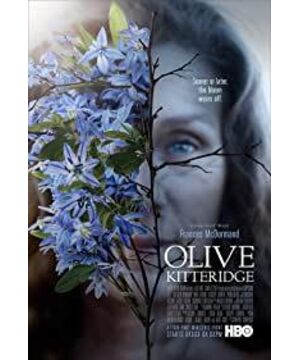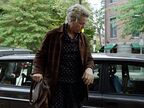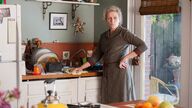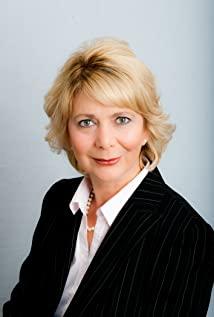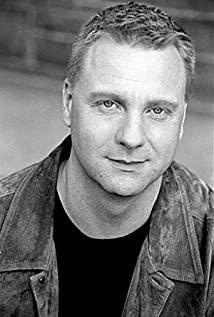The 4-episode HBO miniseries "Olive Kitteridge" is based on Elizabeth Strout's novel of the same name, which won the 2009 Pulitzer Prize. The series received 13 nominations for the 67th Emmy Awards that year, and won all the heavyweight awards including Best Screenplay and Best Director, Best Actress, Best Supporting Actor, Best Actor, and Best Series. According to reports, the heroine Frances McDormand took a fancy to the novel at the time and wanted to shoot it, so he hired Richard Jenkins (the father in another HBO drama "Six Feet Under") and Bill Murray and director Lisa Cholodenko and screenwriter Jane Anderson (she wrote the script for two years). HBO hired Tom Hanks as a producer. And then there's this novel-like series that, while suffocating, miraculously gives viewers infinite hope for life. Both the episode and the novel are titled with Olive's name. The novel is actually a collection of short stories, with a total of 13 stories. Some stories are based on Olive's perspective as the main narrative line, while others are not, but Olive will appear in other chapters as a supporting character or passerby. The biggest advantage of this is that not only can you observe Olive, who is acting strangely, from the perspective of a bystander, but you can also gain a deep understanding of Olive's inner entanglement and deeply explore the reasons for her series of behaviors. The series is completely from Olive's point of view, narrating her 25-year life that is neither long nor short. Essence and condensation maximize the emotional impact on the audience. Olive lives in Maine. As part of the New England region of the United States, Maine's early settlers were mostly Protestants who fled from England. It is also mentioned in the novel that Olive's husband Henry is a Protestant who is heartbroken because of the increasing contempt for religious beliefs. Olive's ancestors are Scots, they are tough, do not admit defeat, and do not succumb to any difficult environment. Olive clearly inherited this. The episode opens with Olive (played by Frances McDormand) preparing to commit suicide in the woods. She turned on the radio, dropped the suicide note that read "To Those Who May Concen," and picked up the gun. "The spring was gorgeous, and seemed an assault." The same radio, the same piece of music, takes the audience back to 25 years ago, and also hints at the monotonous life of the protagonist. Small town life is like this, monotonous and boring. But grand. Because life is like that. Olive is a junior high school math teacher. She's mean, tough, and straightforward, and doesn't mind stabbing everyone around her. Because of his son's disobedience, he would slap him directly. She scoffed at her husband's confession, and threw the cards her husband bought into the trash. I feel resentful about any ritualistic occasion. I don't care about the feelings of others. She also never accepts the help of others, and bears everything. When someone proposes to contact a psychiatrist, she will tell the pain that the other party has experienced in person. "A person can only move forward, she thinks. A person should only move formoard." Olive has three men in his life. Husband Henry (Richard Jenkins), blue-faced lover's school language teacher Jim O'Casey (Peter Mullan), and Jack Kennison (Bill Murray), who appears later in life when everything leaves Olive. Olive and her husband met in college, when the two came together over a common interest. Although it is not explicitly mentioned in the novel, from the implied content, the previous Olive was not as covered with thorns as it is now, and her father committed suicide with a gun without leaving a word, which changed everything. With Olive's character, she doesn't ask for help and doesn't talk to others. The scars can't heal on their own, the ulcers are oozing pus, and they slowly devour the beauty around them. "...deep down there is a thing inside me, and sometimes it swells up like the head of a squid and shoots blackness through me. I haven't wanted to be this way..." Husband Henry (Richard Jenkins) is a pharmacist, a good-natured man, kind to anyone, and silently endures Olive's hurtful words and deeds. Henry had grown accustomed to enduring. "He suffered the quiet trepidations of a man who had witnessed twice in childhood the nervous breakdown of a mother who had otherwise cared for him with stridency." , they will also try to reflect everything back on themselves, thinking that it is their responsibility to make their parents happy, and it is their responsibility to make everyone happy. Henry was like that. In the novel, later, Henry couldn't accept his son's divorce and always asked about his son's emotional state. Tired of being asked, son Christopher would ask Henry back, "Why can't you just leave people alone?" "He doesn't want people alone." Because Henry knows how unbearable loneliness is, so he doesn't want anyone to be alone . Their lives are changed by the arrival of Denise, a new pharmacy clerk. Denise likes to laugh and is kind to everyone. She has a good relationship with her husband who is also named Henry. Her presence made Henry happy, and the two of them couldn't stop laughing at the slightest thing. This is in stark contrast to the tense and oppressive atmosphere Olive created at home. And the young Henry reminded the older Henry of his college years and the good old days. Denise is particularly content. Because she and her husband go digging potatoes at night, she feels unreal happiness and feels that she doesn't deserve happiness. "He wondered what in her young life had made her not trust happiness; perhaps her mother'
The photo behind Henry hints at the end of the story
Henry couldn't leave Olive, he couldn't leave his marriage, and his faith didn't allow him to do so. He just wants to live in his own little world. He was used to putting up with everything. "You get used to things, he thinks, without getting used to things." Enduring doesn't mean the problem doesn't exist. In the end, the knot between the two broke out because of a kidnapping in the hospital. That hospital, the hospital where Olive was born, is also the hospital where her father died. Again, this time something died and something was reborn. At the juncture of life and death, Olive expressed his anger at Henry's mother, and Herny also expressed his dissatisfaction that Olive did not give his family any breathing room. The two laughed at each other's past spiritual derailment. This changed the relationship between the two irreversibly. For Henry's flowers and confession, Olive did not sneer again, did not throw the card into the trash, but said "You too", she smiled secretly at Henry's background. She can only do so. It's a brutal contrast to the candid smile that Olive gave to Henry after he had a stroke. People always regret it, why didn't they know how to cherish it at that time. It is not so much a matter of hindsight about what is worthy of cherishing. Many times it is already clear at the time, but it is still impossible to do. Because that's who she is. Some things are impossible for some people to do in a lifetime. Henry once accused Olive of never sincerely apologizing to anyone, and son Christopher accused Olive of never admitting he was a bad mother; they were right, Olive couldn't. "People know exactly who loves them, and how much - Olive believed this. So, in Olive's view, everything needs to be said. Olive has a platonic romance with O'Casey, a language teacher at the same school. She gave him all the tenderness she had. The two meet to abandon their families and run away together. O'Casey died in a car accident. According to multiple hints, O'Casey likely committed suicide. "save us from shotguns and father's suicide" written on a tissue left at the bar before the accident breath. "Sha had felt a pulse of recognition, although she knew she'd never seen him before." "We're both cut from the same piece of bad cloth." And finally Kennison and Olive were in completely different situations world. He graduated from Yale, taught at Princeton, lived in a villa and drove a roadster. The only thing the two have in common is that they can't stand being alone. Kennison's wife died, and his only daughter was gay. As an ultra-conservative, he couldn't understand it and cut off contact with her daughter. Henry finally left Olive after several years in bed with a stroke, and chose when Olive went to New York to visit his son. Olive and his son had a big fight, and the relationship between the two parties was at its lowest point. In this case, the two meet. "Loneliss can kill people - in different ways can actually make you die." "Olive pictured two slices of Swiss cheese pressed together, ludicrous, unknowable world! Look how she wanted to live, look how she wanted to hold on." Kevin's story subtly alludes to Olive's experience and points to the cruelty of life: in the words of Kertesz, "We We can never start a new life, we can only continue the previous life. "Olive is still haunted by her father's death because her father never confided in her that sometimes he wanted to end it. "She said lightly, 'Oh, Father, we all have times when we feel blue.' The wrong response, as it turned out." Olive has been burdened with the consequences of wrong answers all her life. One of the most desperate consequences for her is her relationship with her son Christopher. Olive will respond with a slap at every turn when his son resists. The repressed atmosphere at home also left an irreversible shadow on his son. The psychologist said it was a miracle that he did not commit suicide. Olive was not satisfied with Christopher's first wife, believing that she was know-it-all, not A character that his son can handle. Olive knows the hardships and unpredictability of life, so she hates her daughter-in-law Suzanne's self-righteous attitude. Because when she was resting in the room, she heard her daughter-in-law speak ill of herself, and Olive used a marker to write on the daughter-in-law's Several lines were painted on her dress, and she stole a shoe and an earring. "It does not help much, but it does help some, to know that at least there will be moments now when Suzanne will doubt herself." " Nobody knows everything - they shouldn't." Later, Chrisopher left Maine, the place that suffocated him. He moved to California. He divorced, remarried, received counseling, and moved to New York. Chrisotpher invited Olive to come to New York with the intention of reconciling his relationship with his mother, but it ended in a quarrel. Christopher finally spoke out about his many years of grudges and a feeling that Olive could never understand. Olive doesn't understand what he's doing wrong. Perhaps, this is because she also grew up so, enduring her father's sarcasm and slaps from time to time, never expressing her true feelings. Christopher grew up to be a different person than Olive, because he chose to get help from elsewhere, and Olive chose to die. No matter the drama or the novel, Olive's tenacity is vividly displayed. In the end, the audience may still dislike Olive, but they cannot but admire Olive's tenacity. Among them, the thing that strikes me the most is Olive's obsession with food. Olive is outspoken about his food obsession when persuading Kevin, at an engagement party, at a wedding, when alone, and on a date with Kennison. Olive once said to the students "Don't be scared of your hunger. If you're sacred of your hunger, you'll just be one more ninny like everyone else." On the one hand, Olive is telling the students, don't be afraid of desires, don't run away, and face your own desires to show her purity and authenticity. On the other hand, it also showed her determination to fight the world. Olive has struggled with the world all his life. She doesn't want to lose, and even if she loses, she doesn't want to give up. I have always felt that "the body is the capital of the revolution" is too vulgar to express the true meaning of life. In the past when I was studying abroad, the more difficult it was and the more I felt that I couldn’t make it through, the more I would go out and spend a lot of money on a big meal. This is like a hint, telling myself that there is still the strength and courage to persevere. So, at the end of the episodes and novels, Olive will say this sentence. Finally, I conclude with the words of Hemingway, who committed suicide by swallowing a bullet, "A person is not born to be defeated. You can destroy him as much as you can, but you cannot defeat him." Angele (Martha Wainwright), who has been playing the piano, is also a storyteller, and one of the novels is about her life, which is my personal favorite. Angela met the piano at the age of 4 and is a genius who can learn without learning. As soon as she touched the piano, she said, "My hands are hungry." At the age of 15, she had the opportunity to go to the Conservatory of Music with a full scholarship. However, the mother stood in the way, her future, her boyfriend, kept Angela tightly by her side. Angela played the piano all her life in the tavern, and was a man's mistress for more than 20 years. Almost everyone in the town knew Angela, but few people knew her story. "Long ago Angie had known not to try to make sense of these things, the way other people tried to do." "You couldn't make yourself stop feeling certain way, no matter what the other person did. You had to just wait . Eventually the feeling went away because others came along.Close to You .
View more about
Olive Kitteridge reviews


